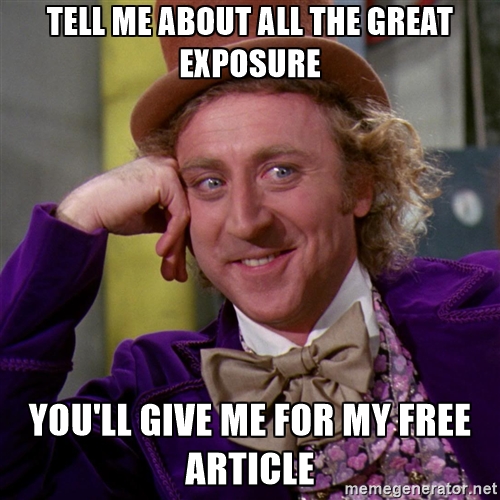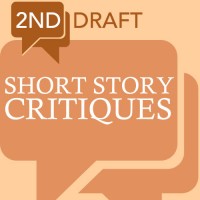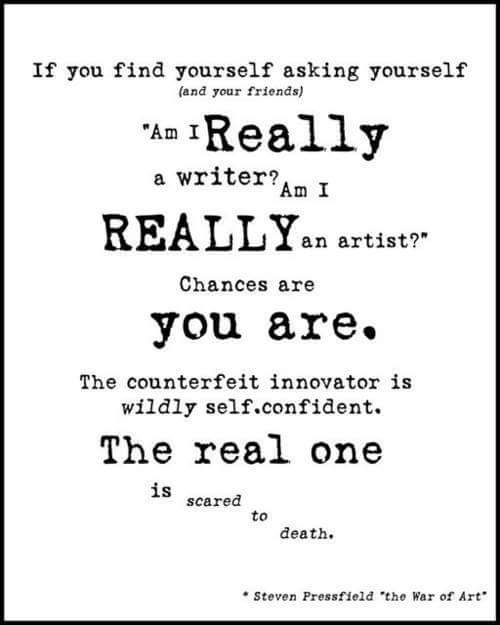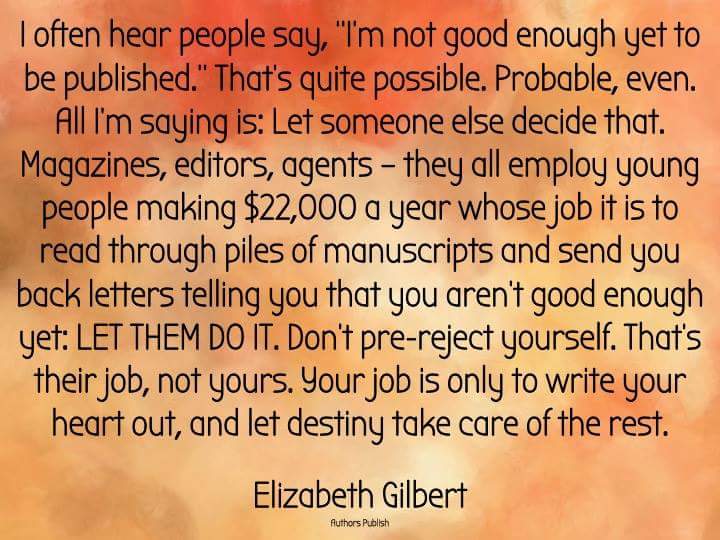
Words on Writing :: 04.22.16

“The most beautiful things are those that madness prompts and reason writes.”
—Andre Gide
5 Things Better Call Saul Can Teach Us About Writing :: via Writer’s Digest
I love character studies! And that’s what AMC’s Breaking Bad spin-off Better Call Saul totally is: a character study of that lovable con-man Saul Goodman. Good writing is the heart of good television, and Writer’s Digest associate editor Cris Freese has compiled some writing takeaways from the hit show.
– sld
__________________________________
5 Things Better Call Saul Can Teach Us About Writing
by Cris Freese
I think the general consensus among those writers who teach the craft is that you must read—and read widely—about the craft of writing. They’ll also tell you to study fellow authors who write in your genre. And that’s solid advice. But I think there’s a lot you can learn about writing from other mediums, too. Specifically television. And since we’re in the golden age of television, there has never been a better time to analyze all the excellent writing that takes place in shows today—as well as some from yesteryear.
Every other Monday, I’ll be bringing you takeaways from some of the best television shows out there. These are meant to be specific concepts, themes, techniques, etc., that a writer can learn from the show. I’ll take a look at new shows, old shows, shows that are still airing, and others that have every season streaming online.
Let’s start with AMC’s Breaking Bad spin-off: Better Call Saul.
 For those of you who don’t know, Better Call Saul follows Jimmy McGill, a struggling lawyer who works cases as a public defender for guilty clients. His office is located in the back of a nail salon and doubles as his home. Jimmy also cares for his brother Chuck, a high profile lawyer who has taken a leave of absence from his firm due to the onset of electromagnetic hypersensitivity. Over the course of the series we’ll see how Jimmy will develop into the sleazy Saul Goodman of Breaking Bad. (Potential spoilers follow.)
For those of you who don’t know, Better Call Saul follows Jimmy McGill, a struggling lawyer who works cases as a public defender for guilty clients. His office is located in the back of a nail salon and doubles as his home. Jimmy also cares for his brother Chuck, a high profile lawyer who has taken a leave of absence from his firm due to the onset of electromagnetic hypersensitivity. Over the course of the series we’ll see how Jimmy will develop into the sleazy Saul Goodman of Breaking Bad. (Potential spoilers follow.)
1. Quirky Characters Have Quirky Backgrounds
No one expected the first season of Better Call Saul to begin with the wheeling-and-dealing, shady Saul Goodman from Breaking Bad. And though the black-and-white opening began with a nervous Goodman fearing he’d been recognized at a Cinnabon in Ohama, it was clear that this is the aftermath and not the main story. The lawyer with the cheesy commercials, one-liners and shiny white Cadillac had to have a background. That background is the basis for Better Call Saul, essentially making it a character study of sorts. And Goodman’s background is as quirky (or more so) as his shtick.
 If you’re creating a hardened, cynical cop or detective, there needs to be a background that reflects his current state. Something made him develop a cynical world view. Goodman works well as an off-white, sketchy lawyer because he grew up as a con artist. Viewers quickly find out that Saul Goodman (a name created from the slurred line, “It’s all good man”) is actually Jimmy McGill, who used to be known as “Slippin’ Jimmy” for feigning falls in front of businesses and operating other petty scams. This character is believable as sleazy because that’s a part of who he is. He’ll go so far as to stage a filmed publicity stunt as his billboard is taken down, allowing him the “opportunity” to save a man’s life. However your character appears, commit to that in his background. And spend time actually writing and developing that background—even if it’s something that never makes it into your story.
If you’re creating a hardened, cynical cop or detective, there needs to be a background that reflects his current state. Something made him develop a cynical world view. Goodman works well as an off-white, sketchy lawyer because he grew up as a con artist. Viewers quickly find out that Saul Goodman (a name created from the slurred line, “It’s all good man”) is actually Jimmy McGill, who used to be known as “Slippin’ Jimmy” for feigning falls in front of businesses and operating other petty scams. This character is believable as sleazy because that’s a part of who he is. He’ll go so far as to stage a filmed publicity stunt as his billboard is taken down, allowing him the “opportunity” to save a man’s life. However your character appears, commit to that in his background. And spend time actually writing and developing that background—even if it’s something that never makes it into your story.
2. Characters Should Have a Moment of Growth
One of the primary story lines of the first season involves the Kettlemans. Craig Kettleman, the father, has been accused of embezzling $1.6 million dollars as the former county treasurer. Jimmy wants to take on the family’s case, but it ultimately goes to his hated rival, Howard Hamlin of Hamlin, Hamlin and McGill (with whom Jimmy’s brother is employed, but currently on leave). Jimmy’s friend Kim is assigned the case and ultimately fails to get the Kettlemans to take a plea deal, leading to her demotion. Knowing the Kettlemans have the embezzled funds, Jimmy has his associate steal the money. And while Slippin’ Jimmy may have split the cash with his partner, Jimmy decides to turn the money over to the police and tell the Kettlemans that their money is gone. He gets Craig to accept the plea deal, resurrecting Kim’s career even as it sets back his own (the Kettlemans had turned to Jimmy, believing he could get Craig off the hook).
Characters are most interesting when there’s a moment of conflict that ultimately leads to growth. Jimmy showed that he cared about someone other than himself, which is more than a little surprising. Previously, it seemed like he was only concerned with his own career. Going against his character and nature gives us a reason to root for Jimmy. When you’re writing characters, make sure you show true development over the course of the story. Whether that development ultimately leads to anything is up to you—she can always slip back into old habits. But a character shouldn’t remain static, or you’ll lose your audience.
…
10 Tips for Taking Feedback on Your Writing (And How to Trust It, Too!) :: via The Writer’s Circle
Since I am (STILL!) waiting for my short story critique, I thought these ten tips from The Writer’s Circle on how to sensibly respond to feedback were appropriate. At this rate, I’ll have them memorized by the time my reviewer sends me his.
– sld
____________________________________________
10 Tips for Taking Feedback on Your Writing (And How to Trust It, Too!)
So someone had something to say about what you wrote. Maybe that someone was an editor who you paid, maybe it was a friend who graciously read through your work, or maybe it was a reader who had a comment.
Regardless of where the feedback came from, there’s a skill to putting it into context that means assessing whether you should be taking the advice, and then making sure you’re reacting in a constructive way.

First, a few tips on establishing that the feedback is trustworthy:
10. Watch out for agents/publishers who want to edit.
This isn’t always the case, but there are times when a publisher or agent recommends themselves as a paid editor or someone to offer paid feedback, according to Writer Beware. Someone could be trying to collect a finder’s fee or referral fee so be careful there.
9. Ignore purely personal attacks.
If someone is insulting your character or generally being mean instead of constructive, then don’t waste your time on it. There are plenty of people out there who will provide thorough feedback that is actually helpful, and focusing on the negative-just-to-negative won’t get you anywhere.
8. Look for common themes.
A great tip from Helping Writers Become Authors, this is a really helpful way to find trustworthy feedback. If lots of readers, commenters, or reviewers are saying similar things or pointing out the same places for improvement, then they probably have a point. One of the toughest things about wading through feedback is separating what’s just a matter of opinion and what’s more objective, so looking for those common points can help.
If you trust that the feedback is coming from a knowledgeable source and that it’s constructive now you have to decide how to apply it:
7. Be prepared for criticism.
Especially if your work is getting its first review, it’s important to prepare for criticism. It’s not going to be perfect, and you want people to point out what doesn’t make sense, what could be worded better, what doesn’t flow. By managing your expectations, you’re saving yourself from feeling bad once you see the feedback. That criticism is essential to make your work the best it can be.
See the full article at The Writer’s Circle.
Home
I can’t decide if the gnawing in my belly means I’m sick or just anxious, but I think it’s probably both.
Yesterday was an odd day. I cried yesterday.
I cried today, too.

Maybe that’s what happens after you wear too many masks, when you smile when you’re supposed to and go to bed every night at 10 pm sharp and always refill your gas tank when the gauge needle hits the midway point. Maybe that’s what happens when you forget what your real face looks like.
I never cry.
Yesterday, I stared at my reflection, my real reflection. I saw a frightened girl with sunken eyes and a down-turned mouth. Her arms, outstretched, waiting for some comfort. She began to cry, so I did, too.
The worst part of being anxious is being unable to get out of my own head. I know I invented the Jupiter-sized asteroid heading toward me (yes, just me – not the Earth, not the continent, not my hometown, but ME), that my situation is only as destructive as I make it, but none of that matters.
My intestines feel like an octopus, writhing with intentions of escaping my tense, poisonous body.
Today, I tried to talk to the girl in the mirror. We could only cry together, just like the day before, but today was different, somehow. I could feel her heart beating, and I swear I could almost sense her thoughts. She carried a squirming creature inside her belly, too.
All I want is to be myself, but I don’t know who that is. I don’t know where I went, or if I can return. I stretched my arms toward the girl. I think she understands.
Tomorrow, I’m going to burn these masks. I’m going to shoot a rocket into this stupid asteroid, blow it into oblivion, and get drunk and spew out this churning thing inside me. Perhaps then I’ll be able to find myself, find my place, my soul.
– sld
FINAL UPDATE 02.23 : Writer’s Digest 2nd Draft Critique Service Critique!
UPDATE 02.23 – THE HARROWING CONCLUSION:
I’VE RECEIVED MY CRITIQUE.
John DeChancie’s assessment of my short story:
I don’t have all that much to say about your story, really. It’s superbly written. It has a professional gloss. The style is strong, sure, and direct. Grammar, punctuation, sentence structure, and all the rest—first rate. Prose, as I said, wonderful.
The story works. It accomplishes its task with few wasted words. The dialogue is especially natural and lifelike.
I can’t find a thing wrong with it. There are no changes I would suggest you make. I wouldn’t go so far as to say it is a perfect story, but it is just about as good as it is going to get. I could not improve it if I rewrote it myself.
I’m a bit shocked, and I’m not quite sure what to do with this information. I’m happy, of course, that he sort of had nothing to offer in the way of improvements, but I’m thinking that he didn’t exactly enjoy reading my story. Which is fine. It’s not a story for everyone. And, obviously, I wasn’t entirely pleased with it myself, or I wouldn’t have sent it off for critique.
So, I suppose the next step is trying to get my story published! I’d sent it a couple of places already, but DeChancie also mentioned that I might be better suited in a different market. He also reformatted my document, although the one I sent him was formatted to Writer’s Digest specifications, and instructed me that his version is the preferred one among publishers.
As for the critique service itself, I would use it again, although the turnaround time was far from what is promised. Writer’s Digest promotes a three-day turnaround, and I didn’t receive my critique for nearly three weeks, but I’m okay with that. The reviewers are real writers who have other jobs and writerly responsibilities, so I’ll just know not to expect a quick response next time.
My $28 didn’t really change my life, as I’d said it might in my original post, but I’m just so happy he didn’t tell me that I’m a suck-ass writer. Maybe now I can stop having nightmares where authors tell me to lay down my pen.
– sld
UPDATE 02.16: Still no critique. I gave in and emailed John DeChancie. (I also bought one of his short story collections. I need to know who I’m dealing with here, y’know?) He apologized for the delay and said he’d have my story critiqued this week.
We shall see, John DeChancie, we shall see.
Nevertheless, in full awkward penguin fashion, I started stressing out again after his reply. I actually cried. I’m so embarrassed of myself that I can’t even come up with a funny way of writing about it.
*Sigh*
UPDATE 02.10: So, I’ve yet to receive my WD critique, but I did get an update a few days ago from my critique-person. John DeChancie emailed saying hello and letting me know he’d have my critique to me the following week. I was pleased that I was awake at 2:39 am to see his message arrive, so I could Google him immediately.
And then I freaked out. While I’ve never heard of DeChancie, he’s quite an accomplished writer, having authored a dozen or so novels. Look him up… here’s his website: johndechancie.com.
He’s actually reading my story, if he hasn’t already.
MY STORY.
I’m not only questioning myself and my life choices, but mostly my decision to send off that crap short story that reads like a rejected Twilight Zone episode. What was I thinking?!
Original Post:
In an effort to learn more about my writing mistakes and whatnot, I’ve just sent off a short story to Writer’s Digest for a critique.

It’s only $4. Per page.
To be honest, I’d sort of hoped y’all fine people of WordPress would give me some feedback on my stuff, but that’s not happening. I have no one else other than family to read my writing, and, frankly, I prefer to pay someone else to do it. My critique-person will be honest, at least (I hope).
Here’s how the critique service works:
Step One: Write a short story between 5 and 30 pages in length.
Step Two: Format your document per the explicit instructions found in the Writer’s Digest Shop.
Step Three: Purchase your critique.
Step Four: Email your file along with appropriate info to Writer’s Digest.
Step Five: Get your critiqued story back in a couple of days.
Step Six: Have a drink (for whatever reason you choose)!
I spent $28. That seems like a lot, but I think it will be worth it, seeing as I could be oblivious to the fact that I’m a suck-ass writer. And if I’m a suck-ass writer, I want to know about it. That $28 could change my life.
Anyway, I will update this post once I receive my glowing review (wah-wahhh) from WD.
Happy Night-Owling!
– sld
Words on Writing :: 01.28.16
I’m terrified.

– sld
How to Write: A Year in Advice From ‘By Heart’ :: via The Atlantic
As writers, why do we need validation? I know I do, because I want to be sure I’m correct in my gut-feeling that I was born to write. So I search.
Today, I found an interesting series of articles by The Atlantic’s Joe Fessler, aptly named “By Heart,” where authors talk about their favorite passages in literature. He’s condensed the best writing advice from those articles into a handy-dandy overview. I found it chock-full of validation.
“One thing I think is true about successful storytelling: There’s as much significance in what’s left out as in what’s actually said. Of course, our initial impulse is to want to give lots and lots of context. Here we are at this location. Here’s how we got here. Here’s what it looks like, and so on. That tends to be the easy stuff. The hard part is non-disclosure. This is really a crucial tenet of narration, perhaps the crucial tenet—and it’s not an innate skill. How do we learn how not to tell things?”
– Reif Larsen, excerpt from “How to Write: A Year in Advice from ‘By Heart'”
Read the entire series, “By Heart,” or the overview, “How to Write: A Year in Advice from ‘By Heart.’”
– sld
Words on Writing :: 01.26.16

– sld
Are you ever too scared to write?

As silly as it sounds, I’m petrified to sit down and really work on any of my projects. I’ve been learning more about my personality, and it sounds as though everyone with my personality type dreams of being an author, intent on validation and changing the world, with no real plans of how to do so.
I’m afraid of failure. Of going back to a dead-end, soul-sucking “career.” Of never accomplishing my dream, the very thing that, I believe, is the purpose for my life. That’s a pretty tall order… if I don’t produce the thing I’ve created in my mind, I’ll disappoint myself, my family, the universe and God Himself. Success feels so far beyond reach… like, somewhere near Pluto… and I feel like I should just give up.
But I don’t want to give up.
Have any of you felt this way? How’d you keep going?
– sld